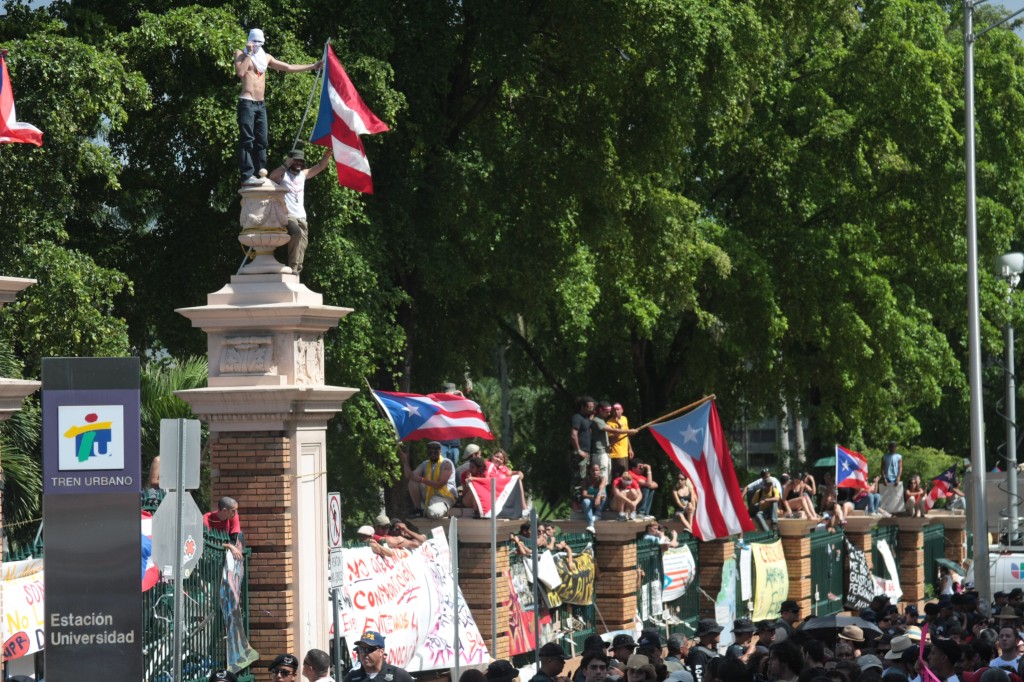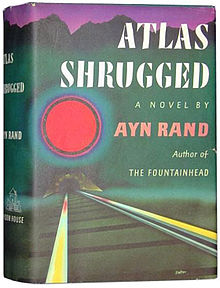EspañolPuerto Rican free-enterprise advocate Frank Worley-Lopez is calling on businessmen and producers to go on a general strike, asking that they close and cease work for the day on September 2. The goal of the shutdown is to protest the overbearing role of the commonwealth government and oppose union demands made in the last few weeks. He also hopes the protest will keep the government from collecting tax revenue that day.
Worley-López, who leads the Atlas Shrugged Day 2014 initiative, is a writer and a television and radio host. He is also the founder and former president of the Libertarian Party of Puerto Rico.
Worley-López explains that the time has come for trade unions to set aside their protests against the changes in fiscal policy that the Alejandro García Padilla administration is proposing. Though the proposals made are imperfect, he says, they are necessary and vital to reverse Puerto Rico’s deficit and avoid default.

According the last report published on July 17 by the Puerto Rican Development Bank, the island community must confront urgent fiscal and economic challenges. The report suggests that the commonwealth government may simply have no choice but to renege on some obligations.
“The commonwealth has confronted a series of financial and economic problems in recent years, due to, among other factors, continuing budget deficits, a long-lasting recession, high rates of unemployment, population flight, and high levels of debts and high pension costs,” the report reads.
The College of Certified Public Accountants (CCPA) of Puerto Rico has echoed this sentiment. They say that it is a necessity for the government to recognize the severity of the fiscal crisis and create a development plan based on fiscal discipline.
With commonwealth debt higher than US$110 billion dollars, the first proposal for a new budget received approval this month. It includes a plan to reverse the deficit to the tune of $775 million.
However, this has generated tension on the island. Many union protests against the government expenditure cuts have proceeded, since union leaders recognize that these modifications will affect their salaries and other benefits.
The Moment to Rebel
Worley-López says the time is now for small, medium, and large businesses to defend themselves: “I’m asking banks, investment firms, major manufacturing operations, shipping and export businesses, and even internet businesses to shut down for 24 hours … those who believe in a free-market economy, in freedom, and understand government has gotten out of hand.”
The objective is to raise awareness of excess regulation, union power and its parasitic largesse, and how commerce could cease to function on the island. “It is time for Atlas to shrug,” he says. September 2 will be in “honor of the date repeatedly mentioned in the Ayn Rand book Atlas Shrugged.”
As part of the event, business leaders will explain the reasoning behind the strike to their employees, who can join the movement too. That would mean “reporting sick, taking vacations, or simply telling their bosses they’ll be on a strike on that day.” Worley-Lopez has also asked for workers to not get paid on that day, to show that Puerto Rico cannot function without the work of private industry.
Along with the argument Atlas Shrugged presents, Worley-López, believes unions have shown zero interest in understanding how business really works, and that they have facilitated the destruction of the United States. In specific, he points to unions as responsible for the Eastern Airlines and Twinkie’s closures.
The strike will have its epicenter in Puerto Rico, but the organizer hopes it will catch on and expand to other regions: “It is not limited to Puerto Rico. I ask businessmen in Latin America and the United States to do the same. Join the strike against the civil tyranny of the government.”

The Novel behind the Revolution
Atlas Shrugged is the late Ayn Rand’s most influential and well-known novel, published in 1957 in the United States. Its philosophy, known as objectivism, is characterized by individualism and its defense of limited government (minarchism), a free market, and an unalienable respect for individual rights.
“Atlas Shrugged is a chant to the mind and human spirits, a chant that urges we break slavery’s chains and underdevelopment, a chant that deserves to be heard by those who love liberty,” says Argentinean libertarian Fredy Kofman.
Throughout the novel, productive men disappear, the big entrepreneurs and businessmen, those who are the motor of the world. This leads the national economy to collapse, as there are no men or women capable of producing and creating wealth.
If you saw Atlas, the giant who holds the world on his shoulders, if you saw that he stood, blood running down his chest, his knees buckling, his arms trembling but still trying to hold the world aloft with the last of his strength, and the greater his effort the heavier the world bore down upon his shoulders — What would you tell him?”
I … don’t know. What … could he do? What would you tell him?
To shrug.”
~ Ayn Rand, Atlas Shrugged
 Versión Español
Versión Español












